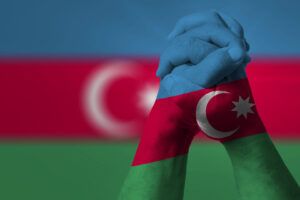Shahla Ismayil, Chairwoman, Women’s Association for Rational Development (WARD), Azerbaijan
In July 2020 UN Women and UNFPA, together with the European Union have launched a three-year regional program to tackle gender stereotypes and gender-based violence in six countries of the Eastern Partnership: Armenia, Azerbaijan, Belarus, Georgia, Moldova, and Ukraine.
The program, entitled “EU 4 Gender Equality: Together Against Gender Stereotypes and Gender-Based Violence,” ultimately seeks to strengthen equal rights and opportunities for women and men by challenging perceptions about men’s and women’s roles in the family and in society and working to eliminate gender-based violence.
We have interviewed leading experts from Eastern Partnership countries to hear about gender equality issues in their home countries. Here are the answers from the expert on Azerbaijan.
How can you describe the gender-based issues in your country, is there any gender inequality (i.e. gender pay gap, gender-stereotyped behavior including men’s non-involvement in parenting and domestic responsibilities, gender-based violence etc.)?
Women’s rights in Azerbaijan is quite a debatable topic – on one hand, universal suffrage was introduced in Azerbaijan in 1918 by the Azerbaijan Democratic Republic, making Azerbaijan the first Muslim-majority country ever to enfranchise women; and women nominally enjoy the same legal rights as men in modern Azerbaijan. On the other hand, women continue facing countless gender-based restrictions, deeply rooted in patriarchal attitudes, traditional social norms and strict gender stereotypes in Azerbaijan. Consequently, gender-based inequalities continue to exist in education, employment, political participation, access to information and communication technologies. Despite of existence of legislative basis for gender equality, there largely exist attitudinal barriers to women’s representation in decision-making positions at all levels. Strong gender-biases and gender roles also dominate at household level – the disproportional involvement of men in parenting and domestic responsibilities is invoked by major influence of the traditional society. Traditional female professions, mostly in low-paid job sector as well as over 600 banned job titles for women lead to a number of negative consequences, including a gender pay gap. A new wave of female disadvantages, such as early marriages, sex-selective abortions, trafficking in women, and gender-based violence re-occur in modern Azerbaijan.
Do you expect the program to ensure gender equality in your country, what results can be achieved within three years of its implementation?
The program “EU 4 Gender Equality: Together Against Gender Stereotypes and Gender-Based Violence” has a strong potential to support the policy changes in EaP countries, targeted at enhancing women’s legal rights in political, economic, social and cultural dimensions. Yet, it is not likely to be equally effective in all 6 countries for a number of factors mostly related to the status quo of good governance and democratization progress.
In Azerbaijan the poor human rights context and damaged justice sector in combination with the lack of favorable operation environment for civil society and media significantly worsens overall picture, making the country unfavorable and undemocratic enough to promote gender equality. As a result of the restricted civic space and legal environment, the financial viability, infrastructure, organizational capacities, advocacy, service provision and public image of all CSOs, including women’s organizations, were largely affected. Consequently, the number of women’s participation in public-political processes has been minimized and the women’s rights agenda has been largely distressed in the last 6 years. Therefore, the intensified efforts are required to promote women’s rights and gender equality in Azerbaijan and the participation of the viable independent civil society in this process is an absolute requirement.




